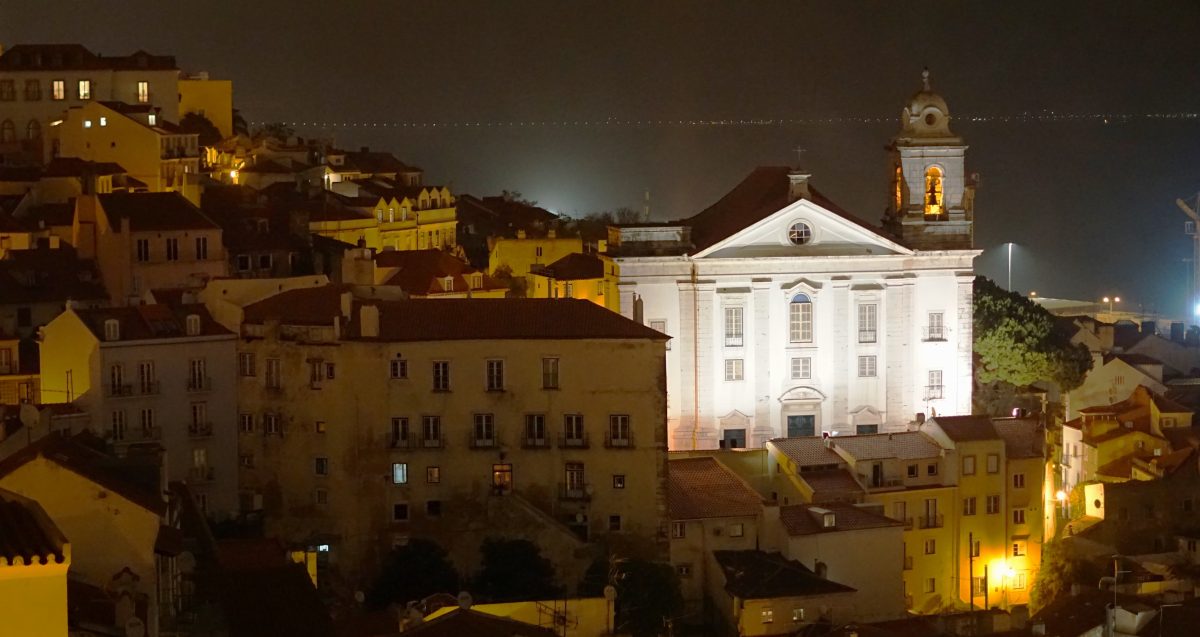There are seven hills in Lisbon, like in Rome. At the top of one of them – perhaps the most beautiful of all – lies São Jorge castle (11th century), which has a spectacular view of Lisbon, the Tagus and the small satellite towns across the river. It is precisely along the slopes of the hill facing the Tagus river that we find the historic district of Alfama. The relationship between Alfama and the river is, therefore, ancestral.
The first to arrive by ship in Alfama came from the Mediterranean, then from the North Seas and later from other parts of the world. In the first half of the 16th century, when Portugal was at the heights of the epic Discoveries, Lisbon was the center of the world and the main port of the most important trade routes. The movement of ships along the Tagus was intense and the people of Alfama were the first to have contact with individuals from faraway lands, namely from Africa, Asia, America, or those who they met in distant lands when they set off on – and survived – their voyage of the Discoveries[1].
Phoenicians, Carthaginians, Romans and Arabs were in Alfama long before the Portuguese Discoveries even began. And it was the Arabs who gave Alfama its unique character, with its narrow streets and alleys, quaint courtyards, picturesque stairways, and its name, which comes from the Arabic, al–hamma, meaning “bath” or “hot springs”.
In addition to the Arab presence, buildings and inscriptions reveal the passage of Jews, Christians and Romans, thus making Alfama a veritable outdoor museum. The historic buildings and layout of the district has remained unchanged for centuries, as if time stood still.
—————————————————————————————————–
[1] The great popular Portuguese singer, Fausto Bordalo Dias, in his album “Por Este Rio Acima” (“Up On The River”), from 1982, exemplarily depicts those voyages. Below, the record of one of the songs from that album, “O Barco vai de Saída” (“The Ship Goes Out”), which is for many, including myself, the popular hymn of Alfama.
******************************************************



